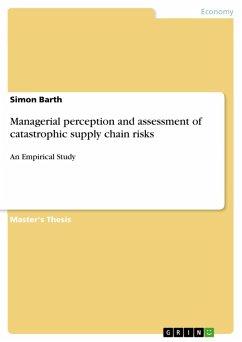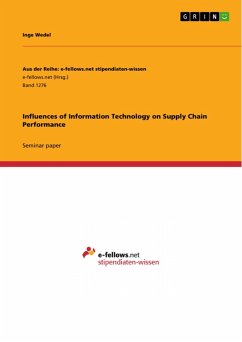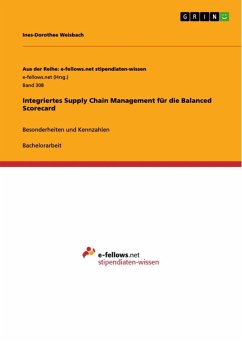Master's Thesis from the year 2010 in the subject Business economics - Business Management, Corporate Governance, grade: 1,3, Maastricht University, language: English, abstract: Purpose - Catastrophic supply chain risks can have severe effects on companies' supply chains. Still, previous supply chain risk management research has predominantly focused on operational risks. The purpose of this study is to explore the construct of managerial risk perception and the assessment stage of catastrophic supply chain risks. Design/methodology/approach - A risky decision making model for catastrophic supply chain risks was applied in an explorative multiple case study approach. Interviews served as the main source for information. Findings - The degree of supply chain integration was found to be a prime determinant of the potential damage caused by disruptions due to catastrophic supply chain risks. The frequency of catastrophic supply chain events seems to be influenced to some degree by the number of suppliers. It is suggested that managerial perception of catastrophic supply chain risks is formed by the degree of potential damage and past exposure to catastrophic supply chain events. Several barriers to the assessment of catastrophic supply chain risks, such as missing top management priority, low supply chain risk management maturity and lack of obvious return were identified. A combination of "softer" supply chain risk assessment methods, expert opinions and simulation techniques have been identified to be useful to assess catastrophic supply chain risks. Originality/ value - This explorative research provides first insights into the construct of managerial risk perception in the context of catastrophic supply chain risks. Further it identifies useful risk assessment tools and techniques for catastrophic supply chain risks, based on both supply chain risk management research and catastrophe research. Key words Supply chain risk management, risk assessment, catastrophic risks, low-probability high-consequence risks, risk perception, managerial risk perception.
Dieser Download kann aus rechtlichen Gründen nur mit Rechnungsadresse in A, B, BG, CY, CZ, D, DK, EW, E, FIN, F, GR, HR, H, IRL, I, LT, L, LR, M, NL, PL, P, R, S, SLO, SK ausgeliefert werden.









